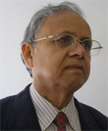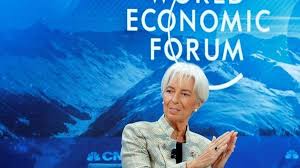www.aljazeerah.info
Opinion Editorials, January 2019
Archives
Mission & Name
Conflict Terminology
Editorials
Gaza Holocaust
Gulf War
Isdood
Islam
News
News Photos
Opinion Editorials
US Foreign Policy (Dr. El-Najjar's Articles)
www.aljazeerah.info
26 Richest People Own Same Wealth as Poorest Half of Humanity By Abdus Sattar Ghazali Al-Jazeerah, CCUN, January 28, 2019 |
 |
 |
|
Just 26 individuals have more money to themselves than the total wealth of 3 billion people, sparking warnings inequality is spiralling out of control.
That means just 26 individuals are as wealthy as 3.8 billion people.
A new report from the Oxfam was published to coincide with the World Economic Forum in Davos, Switzerland — a week-long meeting of the global elite, with three of the 26 richest people set to attend.
The report found that billionaires around the world saw their combined fortunes grow by $2.5 billion each day in 2018, an annual increase of 12 per cent, and urged governments to slap more taxes on the wealthy.
Billionaires, who now number a record 2,208, have more wealth than ever before, according to an Oxfam International report. Since the global financial crisis a decade ago, the number of billionaires has nearly doubled.
The combined fortunes of the world's 26 richest individuals reached $1.4 trillion last year — the same amount as the total wealth of the 3.8 billion poorest people.
The gap between the richest and poorest people is growing, Oxfam said adding: While people at the top get influence, opportunities and power, the poorest people miss out on the basics they need - like schools, jobs and healthcare. But when governments choose to listen to the poorest people, make tax fairer, and invest in public services, the gap can shrink - and the number of people in poverty can drop.
Oxfam's annual report, entitled "Public Good or Private Wealth," has calculated that between March/June 2017 and March/June 2018 the wealth of the super-rich grew by $2.5 billion per day on average, while the bottom half of the world's population saw their wealth dwindle by $500 million daily over the same period.
The 106-page report is meant to call attention to the growing gap between rich and poor.
Since the financial crisis almost a decade ago, the number of billionaires has nearly doubled, with a new one created every two days between 2017 and 2018. At the same time, the mega-rich and wealthy corporations are enjoying lower tax rates than they have in decades, the report said.
“Governments are exacerbating inequality by underfunding public services, such as healthcare and education, on the one hand, while under taxing corporations and the wealthy,” Oxfam said.
It estimated that a 1% wealth tax would be enough to educate 262 million out of school children and to save 3.3 million lives. As of 2015 returns, Oxfam says that only four cents in every tax dollar collected globally came from tariffs on wealth, such as inheritance or property.
The report also claims that the rich are hiding $7.6 trillion in offshore accounts
Most of these mega-wealthy are American, according to the Forbes list of billionaires used by Oxfam. The names include Amazon's Jeff Bezos, Microsoft's Bill Gates, Berkshire Hathaway's Warren Buffett and Facebook's Mark Zuckerberg, who collectively are worth $357 billion, according to Forbes.
The world’s richest man, Amazon CEO Jeff Bezos, saw his fortune increase to $112 billion last year, Oxfam said, pointing out that just one per cent of his wealth was the equivalent to the entire health budget of Ethiopia, a country of 105 million people.
“Oxfam is saying in this report with evidence that extreme inequality is out of control,” Oxfam executive director Winnie Byanyima said.
The 3.8 billion people at the bottom of the scale meanwhile saw their relative wealth decline by $500 million each day, or 11 per cent last year, Oxfam said, stressing that the growing gap between rich and poor was undermining the fight against poverty, damaging economies and fuelling public anger.
The numbers are stark: Between 1980 and 2016, the poorest half of humanity pocketed just 12 cents on each dollar of global income growth, compared with the 27 cents captured by the top one per cent, the report found.
Oxfam warned that governments were exacerbating inequality by underfunding public services like healthcare and education at the same time as they consistently under-tax the wealthy.
Calls for hiking taxes on the wealthy have multiplied amid growing popular outrage in a number of countries over swelling inequality.
In the United States, new congresswoman Alexandria Ocasio-Cortez made headlines earlier this month by proposing to tax the ultra-rich up to 70 per cent.
The self-described Democratic Socialist’s proposal came after President Donald Trump’s sweeping tax reforms cut the top income rate last year from 39.6 per cent to 37 per cent.
In Europe, the “yellow vest” movement that has been rocking France with anti-government protests since November is demanding that President Emmanuel Macron repeal controversial cuts to wealth taxes on high earners.
And in Britain, a populist campaign helped persuade a majority of voters to opt for quitting the European Union in the country’s 2016 referendum on Brexit.
Indian billionaires saw their fortunes swell by Rs 2,200 crore a day last year, with the top 1 per cent of the country's richest getting richer by 39 per cent as against just 3 per cent increase in wealth for the bottom half of the population, an Oxfam study said.
Oxfam further said that 13.6 crore Indians, who make up the poorest 10 per cent of the country, continued to remain in debt since 2004.
"It (the survey) reveals how governments are exacerbating inequality by underfunding public services, such as healthcare and education, on the one hand, while under-taxing corporations and the wealthy, and failing to clamp down on tax dodging on the other," Oxfam India CEO Amitabh Behar said. The survey also shows that women and girls are hardest hit by rising economic inequality, he added.
According to the Oxfam report, India added 18 new billionaires last year, raising the total number of billionaires to 119, while their wealth crossed the USD 400 billion (Rs 28 lakh crore) mark for the first time.
It rose from $325.5 billion in 2017 to $440.1 billion in 2018, making it the single largest annual increase since the 2008 global financial crisis. Oxfam further said getting India's richest 1 per cent pay just 0.5 per cent extra tax on their wealth could raise enough money enough to increase the government spending on health by 50 per cent. It said the combined revenue and capital expenditure of the Centre and states for medical, public health, sanitation and water supply is Rs 2,08,166 crore, which is less than the country' richest man Mukesh Ambani's wealth of Rs 2.8 lakh crore. Globally, Oxfam said the tax rates for wealthy individuals and corporations have been cut dramatically. While billionaire wealth soars, public services are suffering from chronic underfunding or being outsourced to private companies that exclude the poorest people, Oxfam said.
http://www.journalofamerica.net/2019/January-2019/Oxfam-2019/oxfam-2019.html
***
Share the link of this article with your facebook friends
|
|
|
|
||
|
||||||


